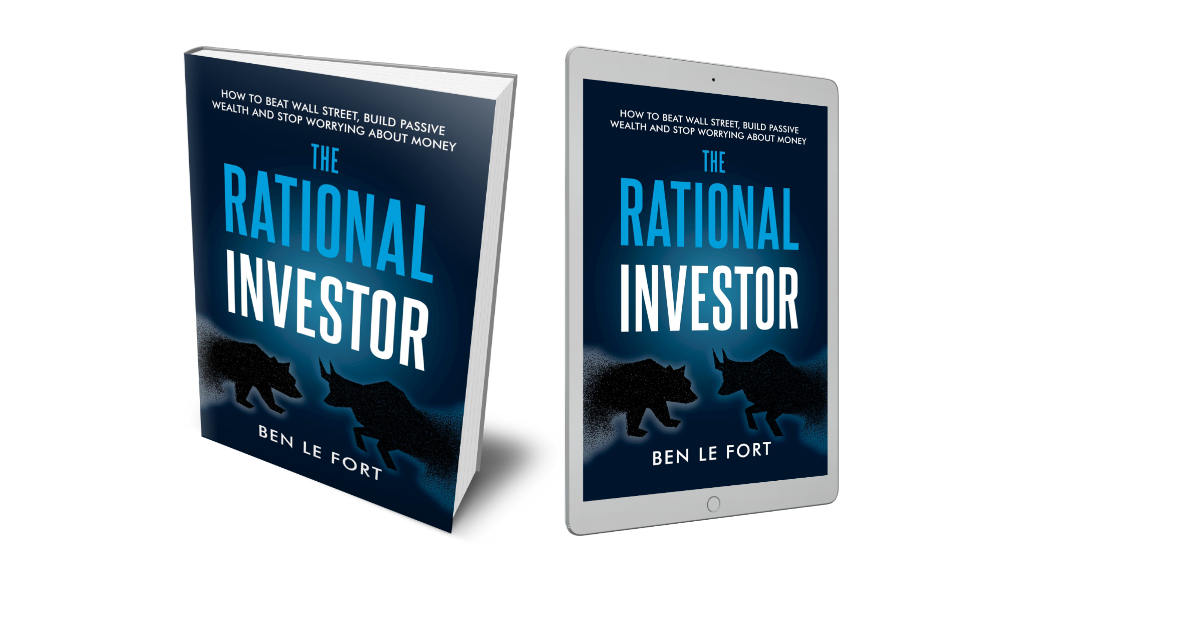The Secret to Lasting Happiness: Experiences vs. Stuff
Here's what the research says

The purpose of life is to live it, to taste experience to the utmost, to reach out eagerly and without fear for newer and richer experience.
—Eleanor Roosevelt
An important question you’ll need to answer when trying to buy happiness is whether you should focus on experiences like travel or material purchases like a new TV.
Let’s not bury the lede; research confirms that for most people spending money on experiences brings greater happiness. A 2003 paper titled “To Do or to Have? That Is the Question” finds that spending money on experiences brings more happiness in three ways.
The anticipation of an upcoming experience.
The joy of the experience in the moment.
The memories that experiences create.
I recently went on a three-day trip to Ottawa with a few of my best friends, who I don’t get to see as often as I would like because we live on opposite sides of the country these days.
The anticipation of the trip provided a daily dose of free happiness. We created a group chat where we planned the trip details, like where we would stay and what we would do while in Ottawa. This created excitement for the trip imagining all the different things we might do, but more than that, it was a great excuse to make sure I was talking with my friends every day and staying connected despite the physical distance.
During the trip, I could completely unplug from my daily obligations that come from my job, my writing, and being a dad. For three days, all I thought about was where we were going for brunch and how many beers I would have at the hockey game.
In the weeks after the trip, the group chat is still active, and my friends and I have this little space created where we reminisce on the memories we made during the trip and relive all the inside jokes from that weekend. I have no doubt that the next time I see them in person, we will have a few more laughs in person, thinking about the fun and stupid things we did that weekend.
Now, compare all that to my buying a 60-inch TV to replace my 56-inch TV.
Is there any anticipation of having a screen 4 inches bigger than the one I currently have?
Not really.
Will I have fond memories reminiscing about the time I watched the new Marvel movie on my couch with marginally higher clarity?
Definitely not.
Will I get greater enjoyment in the moment when I’m watching shows and movies on that bigger TV?
Yes, but it’s not likely to last. This is the most important point to understand why spending money on things is unlikely to bring you lasting joy; let’s dig into it in more detail.
Experiences are fleeting, and that’s the magic ingredient for happiness
Humans are remarkably adaptable. One specific form of adaptation is called hedonic adaptation, which means that changes to our day-to-day lives have a short-lived impact on our happiness and that we return to a baseline level of happiness after changes to our daily lives.
Returning to my example of buying a slightly bigger TV, hedonic adaption explains why that TV is unlikely to bring me lasting happiness. A TV is something I spend about an hour staring at every day. The first time I watch that new TV will be the most I enjoy it. Eventually, I’ll get used to the bigger screen, and I will get about the same amount of pleasure starting at the 60-inch screen as I did the 56-inch screen.
A 2009 paper confirms that this hedonic adaptation is why material purchases bring less joy than experiential purchases. It takes longer for people to adapt to experiences than material purchases. Whereas I will adapt to my new TV within a few weeks, my trip to Ottawa to see my friends only lasted three days. By that time, I start to get sick of sharing an Air BnB with my friends and started getting homesick; the trip is over.
The best feature about taking a vacation is that it ends.
Pick up your copy of The Rational Investor
Minimize investment fees, spend less time thinking about your portfolio, and easily reach your financial goals with “The Rational Investor.”
Pick Up Your Copy Here.
“Things” are ripe for comparison, which is the death of joy
A 2010 paper also found that spending on experiences brought more happiness than material purchases, but for a different reason; we tend to overthink our material purchases.
Through a series of eight studies, the researchers found that material purchases lead us to overthink our decisions in all sorts of ways. I’ll highlight their main findings using my example of buying myself a bigger TV.
Material purchases lead to overthinking about the option you don’t choose. If I buy the 60-inch Sony TV, I might start thinking I would have been better off if I bought the Samsung.
When you make material purchases, your enjoyment of that purchase is undermined by comparisons to other available products. I spent $1,600 on the new TV, but as I walked through the aisles at the department store, I started thinking that I could have bought a new Air Fryer, Instant pot, lawn mower, and leaf blower with the same amount of money.
Even if you’re satisfied with the material purchase you make, you’ll be unhappy if you see that same product is on sale at a later date for a lower price than what you paid for it. I buy my 60-inch TV for $1,600, and then a month later, I see the same TV is on sale for $800, and I feel like I got ripped off.
You are more likely to compare your material purchases with other people’s similar purchases. I bought the 60-inch Sony, and then I went to my friend's house to watch the Super Bowl, only to find he had the 80-inch Sony. Suddenly, my new TV doesn’t seem so great.
Experiences > things is not a universal truth
Like with every financial decision, spending on experiences over material purchases will not be the right choice for everyone.
Some people, by nature, are materialistic; that is, they genuinely enjoy buying “things” more than experiences. Materialistic people might get more joy from buying their new TV or a bigger house than going on vacation or going out to dinner.
As you read that last sentence, you are probably forming a value judgment against these materialistic people; maybe you’re thinking, “what is wrong with them?” I would ask you to reconsider that opinion or at least keep it to yourself because, according to a 2014 study, our shaming of materialistic people might be diminishing their happiness.
For most people, it is true that spending on experiences will bring them more joy. This has created a situation where the societal norm is to consider spending on experiences as virtuous and spending money on materialistic purchases as hollow and something we should avoid. So, when materialistic people spend their money on a new handbag, their joy is slightly diminished because there is a nagging voice in the back of their head saying, “you shouldn’t be wasting your money on this.” This robs the materialistic person from experiencing their maximum happiness.
It’s important to remember that shaming a materialistic person to spend more money on experiences won’t make them happy because guess what? Some people hate to travel and would rather make a frozen pizza at home than go to a restaurant. So, as the title of that research paper I just referenced would suggest, when it comes to spending money, materialistic people are “dammed if they do, dammed if they don’t.” They won’t experience as much joy no matter what they spend their money on.
Let materialistic people enjoy their shiny new toys; don’t rob other people of their happiness.
A final tip: Reframe your materialistic purchases
As I have written in the past, the framing effect has a powerful impact on how we perceive financial decisions.
Since it’s unlikely any of us will completely stop making materialistic purchases, here's a fun exercise in reframing them; think of your materialistic purchases as a way to enhance future experiences.
If I buy that new 60-inch TV, I would be better off if I didn’t think of it as a shiny new object to hang on my wall. I’d be much happier with my purchase if I instead imagined the day in the future when I watch the Harry Potter movies with my son for the first time. This gives me something I can look forward to and, eventually, a memory that my son and I can reminisce over when he’s grown up.
When you buy a new car, think of it as the vehicle for all your future road trips and vacations.
When you buy an air fryer or an Instant Pot, think of all the dinner parties you’ll host and great future conversations with friends.
If you’re about to buy something non-essential and cannot reframe that purchase to enhance future experiences, maybe you should avoid buying it.
Want to read more articles like this? Check out the full archive of stories in the Buying Happiness series.
This article is for informational purposes only. It should not be considered Financial or Legal Advice. Not all information will be accurate. Consult a financial professional before making any major financial decisions.



